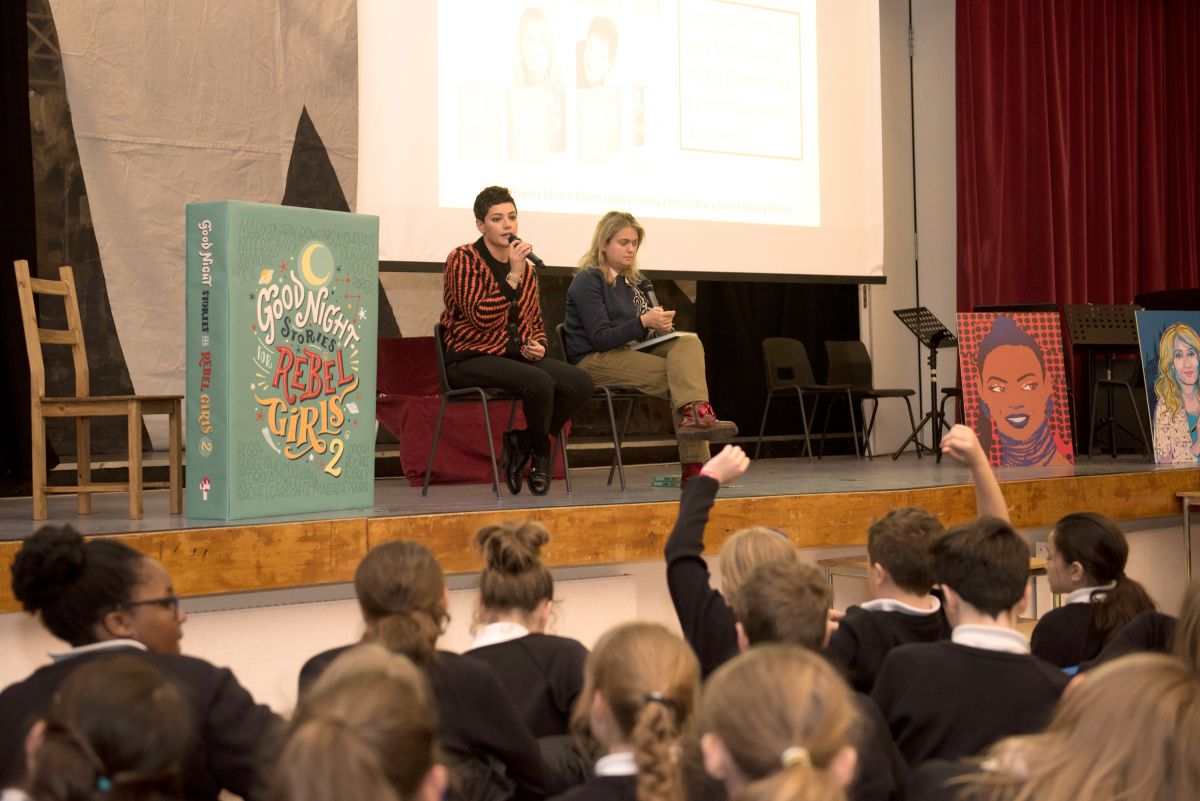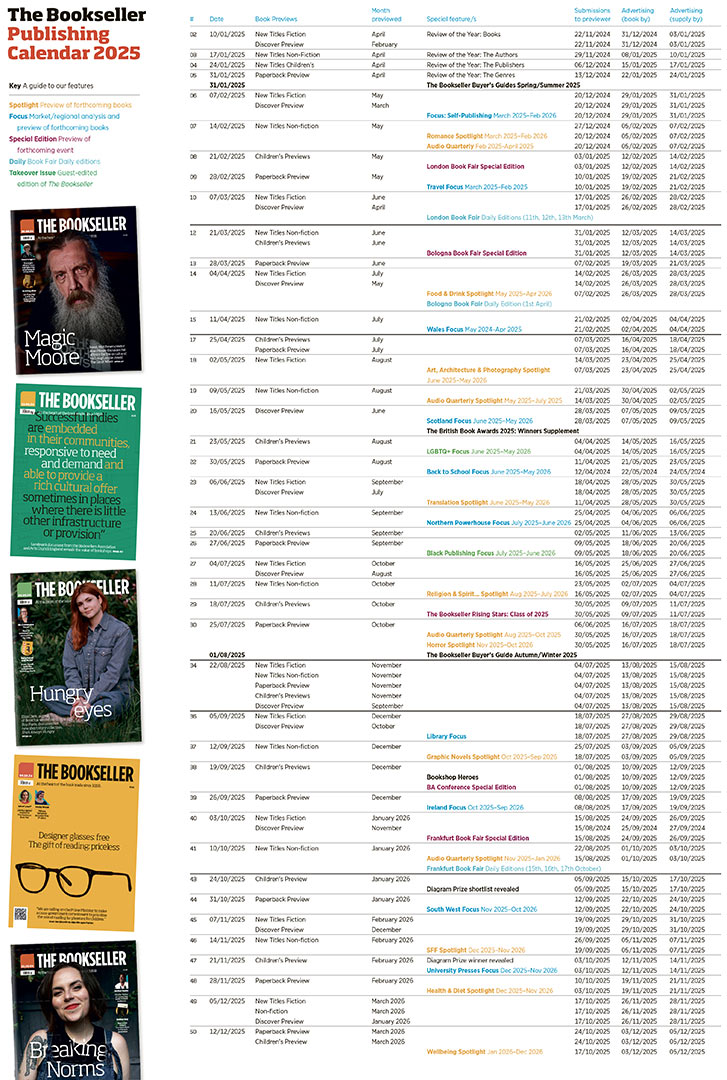You are viewing your 1 free article this month. Login to read more articles.
The rebels who hit the mainstream
Feminism has been the hot children’s publishing trend of the past 12 months or so. Or, rather, a specific type of illustrated non-fiction on the achievements of strong women, some forgotten or passed over by history. Francesca Cavallo and Elena Favilli’s Good Night Stories for Rebel Girls (Particular Books) has been the movement’s leader, shifting £3.2m through Nielsen BookScan since publication last March (although the book is technically coded as an adult title through BookScan). Kate Pankhurst’s Bloomsbury-published Fantastically Great Women titles actually pre-dated Rebel Girls, the first having been published in September 2016, with the five different editions in the series collectively shifting almost £810,000. Other standouts include Rachel Ignotofsky’s Women in Science (Wren & Rook, £397,000) and Libby Jackson’s A Galaxy of Her Own (Century, £49,000).
Since the start of 2018, there has been a glut of publishing in the sector, including the second Rebel Girls title released at the end of February, the Little People, Big Dreams series (Frances Lincoln Children’s) and Ellen Bailey et al’s I am Wonder Woman (Buster Books). Has the flooded market overwhelmed demand? Not yet, reports Tamara Macfarlane, owner of south London children’s specialist bookshop Tales on Moon Lane. Titles about brilliant women are still "flying off the shelves," she says, adding: "We have had hundreds of years of publishing history without celebrating the achievements of women and the reception to these new books shows how desperately they are needed, and how keen people are to see our perception of history more accurately reflecting the achievements of both genders."
Agent Molly Ker Hawn of The Bent Agency agrees, saying she has “absolutely no problem with this trend whatsoever. In children’s books we have an obligation to inform and entertain so, yes, flood the market with strong women, I can’t think of anything better. As with any trend, some books will rise to the top and some won’t, but I want more and more books like this.”
Not everyone is, however, quite so keen on the way books about strong women are being published. Beth Cox, co-founder of diversity consultancy and campaign organisation Inclusive Minds, finds the segregation of women’s contribution to history “problematic”. She explains: “It’s great that we recognise women but every time we separate men and women we say that they are different, and that hinders equality. Having general history books about men and special history books about women is detrimental.”
Cox objects to the very title of Good Night Stories for Rebel Girls because it specifically indicates that the book is “for girls”, which could put boys off. “My eight-year old nephew would not read that book because of the title, but I want boys to read about amazing women. It would have been so empowering to say that book was for ‘rebel kids’.”

Charter School Dulwich on World Book Day © Kasia Rucinska
A passing fad?
Fen Coles, director of bookseller and education supplier Letterbox Library, adds: “We seem to have history books about men and then these books about famous women from history, and that’s not right. The women are always called dauntless, fearless and so on, but the men aren’t. Why do women have to be these things to make it into the history books, but men don’t?”
Coles wants these stories to be absorbed into the mainstream and is wary when the world “trend” is applied to people’s lived experiences. “I’m sure that in less than five years YA books with lesbian protagonists will be on the wane but I will still be queer, for example,” she explains. “I don’t want these books to go back into the background.”
In a similar vein, Macfarlane hopes the market is experiencing a “seismic shift in fair and balanced publishing” and that publishers are not just cashing in on a trend. She would like to see books about all under-represented groups who have had an impact on history, as well as something celebrating inspirational children, regardless of gender.
Florentyna Martin, children’s buyer at Waterstones, is seeing more strong female characters across the board but particularly in début teen fiction. All the shortlisted titles for the Waterstones Children’s Book Prize’s older fiction category feature female lead characters, she says.
Ker Hawn has even seen a change in the way aspiring authors pitch their manuscripts. “I’ve always had submissions with dynamic female characters but now people are highlighting the fact they have written strong female characters,” she claims.
Nosy Crow founder Kate Wilson would like to see more in-depth stories about individual women, citing the Little People, Big Dreams books as an example. That would, however, require the UK to have more of a schools and libraries market than it does at the moment, she says.
The male gaze
Some publishers are using the energy generated by books about inspiring women to publish similar titles about interesting men. Debbie Foy, a publisher at Hachette Children’s Group imprint Wren & Rook thinks good male role models should be brought to the fore and has recently acquired Rob Kemp’s The Good Guys, a book about men who changed the world with kindness.
Foy says: “With The Good Guys [out in September] we decided to shine a light on stories of compassion and there are a mix of people in the book, from George Michael and Oskar Schindler to some lesser-known names. There are so many ‘strong women’ titles but in this current era of toxic masculinity, where so much media coverage is given to people like Trump and Weinstein, we wanted to give young readers good male role models.”
Quercus is publishing a similar title, Ben Brookes and Quinton Winter’s Stories for Boys Who Dare to be Different, in April, which also addresses male gender stereotypes. “It’s not just girls who suffer from labels, it’s boys too,” says Quercus non-fiction publisher Katy Follain. The men in Brookes and Winter’s book, from Beethoven to Barack Obama, do things differently in their extraordinary actions, often showing compassion or sensitivity. “Each one of these boys has gone against the grain and trusted his instincts, even when that meant not conforming to the idea of masculinity, or society’s expectations. With the huge number of books championing feminism and women’s voices, it’s important not to be excluding and to make use of the amazing platform publishing gives us to further everyone’s cause.”










